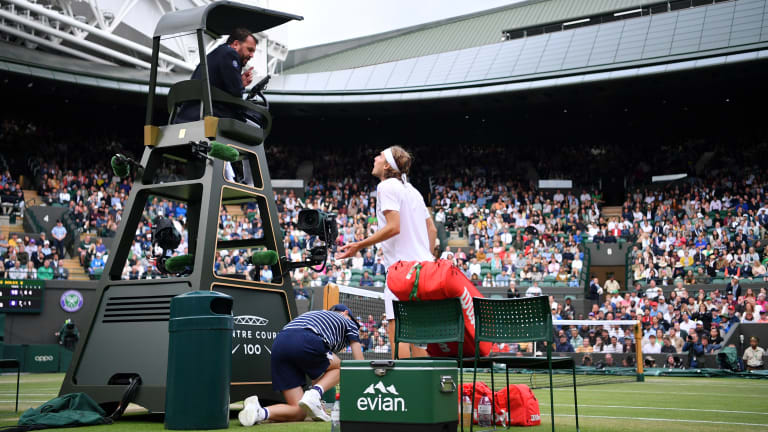Wimbledon
After a war on the court, Stefanos Tsitsipas and Nick Kyrgios engaged in a war of words at Wimbledon. What should happen next?
By Jul 03, 2022Wimbledon
Darren Cahill: Jannik Sinner watches more Carlos Alcaraz matches than he does with any other player
By Jul 14, 2025Wimbledon
Jannik Sinner reignites Carlos Alcaraz rivalry with Wimbledon victory
By Jul 14, 2025Wimbledon
Jannik Sinner reversed his usual pattern against Carlos Alcaraz. It won him Wimbledon
By Jul 14, 2025Wimbledon
Veronika Kudermetova and Elise Mertens win women's doubles title at Wimbledon
By Jul 13, 2025Wimbledon
Joy to the World: What Carlos Alcaraz has, and what we are enjoying
By Jul 13, 2025Wimbledon
Iga Swiatek keeps surprising herself after Wimbledon title caps "surreal" turnaround on grass
By Jul 12, 2025Wimbledon
Iga Swiatek wins first Wimbledon, sixth Grand Slam title with 6-0, 6-0 rout of Amanda Anisimova
By Jul 12, 2025Wimbledon
Wimbledon men's final preview: Will Carlos Alcaraz, Jannik Sinner share another epic?
By Jul 12, 2025Wimbledon
Julian Cash, Lloyd Glasspool become first all-British pair to win Wimbledon men's doubles title since 1936
By Jul 12, 2025After a war on the court, Stefanos Tsitsipas and Nick Kyrgios engaged in a war of words at Wimbledon. What should happen next?
“What happens on the court stays on the court,” the Aussie said after his sometimes-entertaining, often-excruciating third-round win over the Greek. Not quite.
Published Jul 03, 2022
Advertising
Advertising

After four sets, Stefanos Tsitsipas and Nick Kyrgios were done with their match, but they weren't done talking about each other.
© Getty Images
Advertising
Advertising

A frustrated Tsitsipas had some conversations with chair umpire Damien Dumusois of his own.
© Justin Setterfield